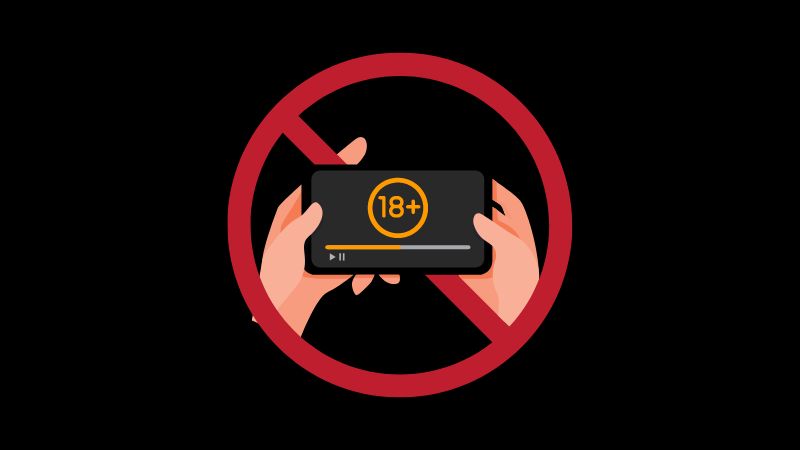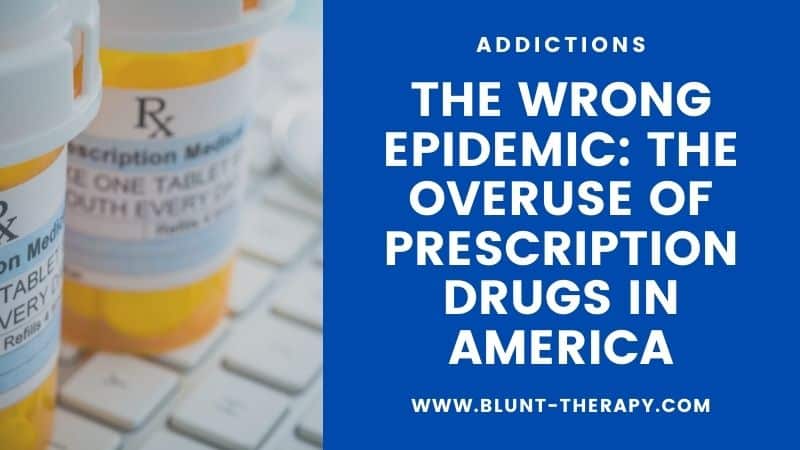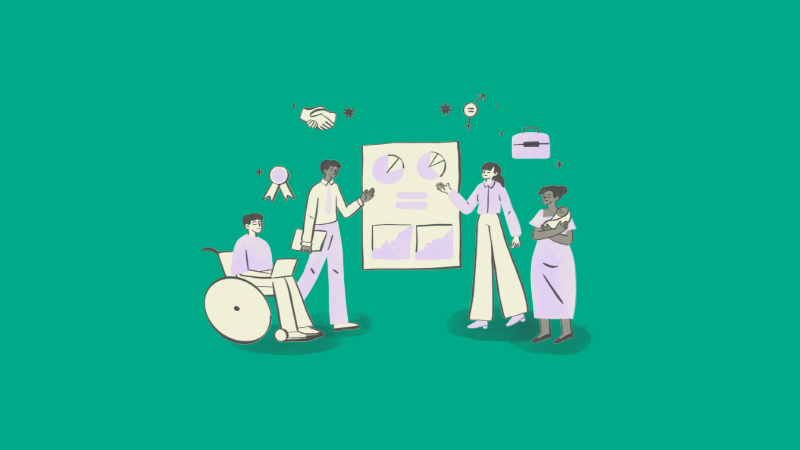Table of Contents
Affiliate link notice: As an affiliate of BetterHelp and other third-party vendors, We will receive compensation if you make a purchase using the links provided on this page. For more information, visit our disclosure page.
Last Updated on December 14, 2021 by Randy Withers, LCMHC
Myths about addiction get sick people killed.
There’s no other way around that statement. Lies about diseases make it harder for the afflicted to seek and receive treatment, which tends to make it spread faster and to more people. The disease of addiction is no exception.

Few other pandemics have been so horribly misunderstood. Those who suffer from it are often scorned, isolated, marginalized, and imprisoned. Millions have been incarcerated, and millions more have lost their lives.
If you are unfortunate enough to come down with cancer or if you suffer a stroke, rest assured that there will be memes on Facebook and posts showing support. Family will camp at your door. Friends will bake warm deserts and deliver them fresh from the oven.
But nobody bakes a cake for an addict. They suffer their fate alone, in hospitals or prisons or rehab facilities with locked doors and barred windows. The physical and psychological pain of withdrawal is overwhelming. Sleepless nights. Diarrhea. Rage one moment. Weeping the next.
It is absolute Hell being an addict.
Myths about addiction create stigma. Stigma drives behaviors underground. And it’s the underground that the disease of addiction festers and grows. We need only look at history to see how this has worked with other diseases.

A Brief History of Dangerous Myths About Diseases
Here are two examples. There are many more.
In the 14th century, the people of Europe incorrectly thought that the Bubonic Plague was simply a disease of the poor. But the Black Death (as it was also called) slaughtered noblemen and knights and merchants and monks all the same. Tens of millions died.
In the 1980s, religious radicals said AIDS was a “Gay Plague.” They said it was a punishment from God for sodomy and other sinful behaviors.
The infected retreated into the shadows. The result was that the disease spread. Soon it was infecting heterosexual men and women as well. And then recipients of blood transfusions. And then children. Soon, it didn’t matter who you were. Gay or straight. Man or woman. Black or white. Old or young.
More than 650,000 died.
So much for a so-called “Gay” Plague.
Here are 7 pervasive myths about addiction that just won’t seem to go away. Each is wrong in its own special way, and for different reasons. But all of them need to die because the disease of addiction is absolutely spreading.
Speaking of which, let’s start with the Disease Model of Addiction itself.

Myth #1: Addiction is Not a Disease
Nowadays, there is little debate about the Disease Model of Addiction, in the same way that there is little debate between climatologists about whether Global Warming is real.
I mean, crazy people don’t believe it’s real, but crazy people believe in all sorts of crazy things. That’s right – I went there. Lives are at stake, people.
Your Uncle Luther might think it’s just a moral failing, but unless Luther is board-certified in addiction medicine, his opinion doesn’t count.
Here are some of the major medical organizations that have endorsed the Disease Model of Addiction:
- The American Medical Association
- The American Counseling Association
- American Psychiatric Association
- Narcotics Anonymous and Alcoholics Anonymous
- The American Society of Addiction Medicine (ASAM)
In fact, here’s a PDF of their findings that you can print out and show to people.
| Type of Drug | Deaths in 2016 |
|---|---|
| Tobacco | 480,000 |
| Alcohol | 88,000 |
| Fentanyl | 18.335 |
| Heroin | 15,961 |
| Benzodiazepines | 11.895 |
| Cocaine | 11,316 |
| Methamphetamine | 6,762 |
| Methadone | 3,493 |
| Gabapentin | 1,546 |
| Tramadol | 1,250 |
| Amphetamines | 1,193 |
| Total Deaths (2016) | 639,751 |
| Source: Centers for Disease Control |
The American Society of Addiction Medicine (ASAM) has published an official definition of addiction. And just so everyone is on the same page, here’s the short version:
Addiction is a primary, chronic disease of brain reward, motivation, memory and related circuitry. Dysfunction in these circuits leads to characteristic biological, psychological, social and spiritual manifestations. This is reflected in an individual pathologically pursuing reward and/or relief by substance use and other behaviors.
Addiction is characterized by inability to consistently abstain, impairment in behavioral control, craving, diminished recognition of significant problems with one’s behaviors and interpersonal relationships, and a dysfunctional emotional response.
Like other chronic diseases, addiction often involves cycles of relapse and remission. Without treatment or engagement in recovery activities, addiction is progressive and can result in disability or premature death.
The American Society of Addiction Medicine (ASAM)
The misuse of drugs and alcohol costs the lives of 165,000 people every year. And if you add tobacco-related deaths, that number crests 650,000. We lost fewer people during all of World War 2.
So not only is it a disease, but it’s one of the deadliest diseases we’ve ever seen. Combating the myths about addiction has to be a priority.

Myth #2: It’s Just A Lack of Willpower
Another one of the persistent myths about addiction is that those who suffer from it do so because they lack willpower.
Many people see it as a moral failing and believe addicts are “broken” or have something wrong with them, like a lack of character or morality.
For many addicts, this could not be farther from the truth, as addicts are often motivated parents, friends, siblings, and workers who have no power to control their addictions.
Drug and alcohol addiction typically develops over time and involves several social, biological, and environmental factors. Prolonged substance abuse significantly alters one’s brain chemistry, which impairs body and brain functioning.
Under these conditions, will power is no match for the physiological changes that alter reward circuitry in the brain, making deep seeded addiction impossible to overcome without sustained professional intervention.

Myth #3: Addiction Treatments Don’t Work
Often addicts don’t think that drug treatment will ever work for them. Many of them are resigned to their fate, convinced they will never change.
It doesn’t help that family members, friends, law enforcement, and even religious organizations agree with them. Many write off the addict as a lost cause, hopelessly beyond repair.
This is one of the myths about addiction that has a basis in reality, as relapse is an unfortunate yet common occurrence in recovery. Because of that, addicts feel that drug treatment is a waste of time.
But the fact is there are many different types of treatment options available that can be individually tailored to meet an addict’s specific needs.
The main reason why addicts feel that treatment doesn’t work is they don’t consider all available options, or they’re simply not ready to fully commit to their recovery.
You can’t really overstate the power of the spell that addiction casts. Addicts truly believe that all is lost.
To them, it’s a fact. Denial and self-deception are just two of the many weapons that addiction uses to keep addicts sick.
Myth #4: Addicts Can Quit Anytime They Want
Discontinuing the use of an addictive, mind-altering substance isn’t as easy as it sounds.
After all, we’re talking about something that alters your mind. If your brain can’t think rationally, how exactly then do you go about making good decisions?
Prolonged use of a substance creates strong dependence through physiological changes to brain chemistry, which can make it torturous to function without it.
Just the act of quitting drugs or alcohol produces powerful withdrawal symptoms that are painful, uncomfortable, and often life-threatening.
Even if an addict can stop the use of a substance, long term abstinence often hinges on addressing the underlying issues that made addiction take hold in the first place.
Myth #5: Detox Will Cure Addiction
Addicts often assume that medically-assisted detoxification services alone will “cure” them of addiction. They think that all they need is a few days or maybe even a few weeks to get everything out of their system. After that, they can go back to living a normal life.
That would be a big no. Addiction is a brain disease. Ceasing use is a start, but a sober brain still carries with it the traits that make an addict an addict.
Medical detoxification is effective in helping to wean addicts off of addictive and dangerous substances. Detox also helps an addict better tolerate the physical and psychological symptoms of withdrawal and helps them feel physically better. But quitting is only the first step.
Recovery from drug and alcohol addiction begins with abstinence, but it’s a process that can take years.
Detox has never been a standalone treatment or a “cure” for addiction.
Detoxification is a part of a comprehensive treatment plan which includes discharge to individual or group psychotherapy, 12-step meetings, or similar sober support groups like SMART Recovery life and coping skills training.
A true addict must abstain from substance use for the rest of their lives, which takes long term dedication and various types of support. Breaking an addiction is only the beginning of a process of uncovering and addressing the root causes of addiction.
Myth #6: It Was Always Just About The Drugs
Anyone who has been in recovery long term will tell you that drug and alcohol use was a symptom of a much bigger problem.
Narcotics Anonymous has a saying – “The only thing you need to change is everything.” Because there was a reason addicts turned to drugs in the first place, and that reason usually has to do with some form of unresolved trauma.
Childhood abuse and neglect. Combat. Low self-esteem. Foster care. Dangerous and unsafe neighborhoods. Trauma.
These are just some of the myriad reasons why addiction develops in some and not others.
Most addicts report feelings of intense isolation and disconnection from the world in which they live. They feel rejected, misunderstood, unloved, or abandoned. Terrible and strong emotional states that by themselves traumatic.
Ask any addict in recovery why they used the way they did, and they will tell you that they hated the way they felt about themselves, and drugs were the most effective way they had discovered to mask the pain.
Most people will go to extraordinary lengths to avoid pain and suffering. And despite all the damage that drugs and alcohol wreak on their lives, they still prefer drugs to facing whatever it is that drove them to use.
The last of the myths about addiction we’re going to look at might be the most important on the list. I’ll explain why here in a moment.

Myth #7: Addicts Just Need Tough Love
A plethora of life experiences, social situations, cognitive distortions, co-occurring mental health disorders, and genetic predispositions go into making an addict.
In other words, addicts are made, not born. If I had to pick one word to describe the typical upbringing of an addict-in-the-making, that word would be ‘unstable.”
Here are some examples of how that instability can present:
- Social instability, such as negative peer groups or a culture of drug use within the home;
- Emotional instability, such as an unstable sense of self that results from poor self-esteem, a lack of self-confidence, or a predisposition toward negative thinking.
- Psychological instability, such as the type that results from long term battles with depression, anxiety, post-traumatic stress, and bipolar disorder.
- Interpersonal instability, such as a feeling of isolation or rejection from a social group
- Physical instability, such as what would result from chronic pain and disease.
- Financial instability, such as the kind that would cause significant stress in a person’s life. Inability to pay for food or shelter, for example.
- Family instability, which results from neglectful, rigid, or indulgent parenting styles. Abuse, in its many forms, is, of course, a part of family instability.
Addicts need consequences. They need structure. They need accountability. They need support. What they don’t need is this so-called “tough love” crap that addictions counselors like me hear about all the time.
Have you disowned your addict son? Have you stopped talking to your alcoholic daughter? Have you believed one of these myths about addiction and allowed that belief to destroy your relationship?
Congratulations, you have all but guaranteed that their disease will get worse.
There is no doubt that it is difficult to love someone in active addiction. The behaviors they engage in, the choices they make. It’s sickening to watch them self-destruct.
But the thing is, these people are ill. Deathly ill. And as much as punishing them might make you feel better in the short term, you will all but guarantee that they will eventually become just another casualty.

Conclusion: Erasing The Myths About Addiction
It’s time we start having an honest conversation about the nature of addiction, and how we as a country think about it.
The fact is that drug addiction is a complicated, incurable, and progressive condition that affects people from all walks of life. It affects anyone regardless of gender, ethnicity, creed, educational level, and sexual preference.
And the evilest thing about it is that it tends to infect the most vulnerable among us. The traumatized, the depressed, the abused, the lonely.
Growing research has established that addiction stems from a variety of social, biological, and environmental factors. It is not a moral failing. It is not just about saying no.
These myths about addiction perpetuate stigma—and this prevents those who struggle with substance abuse from getting the help they need.
Let’s work together, you and I, to rid our culture of these ridiculous myths about addiction and instead reach out to those who are suffering the most. These are our brothers and sons, our mothers and fathers, our daughters and sisters, our family members and friends.
If you have thus far been spared by the scourge of addiction, use this time to educate yourself and learn how to help someone you love. Because the chances that addiction will affect either you or someone you love is so high as to be virtually guaranteed. It’s only a question of when and who and how bad it will be when it finally happens.
Check them out and see if they might be a good fit. In the meantime, I recommend anyone in recovery visit their local 12-Step meeting. You can go here for AA and here for NA to find a meeting near you.
References
- “Exploring Myths about Drug Abuse”
- Fact or fiction? Five myths about addiction
- 4 Common Myths About Drug Addiction
- Common myths about addiction











